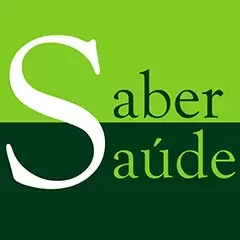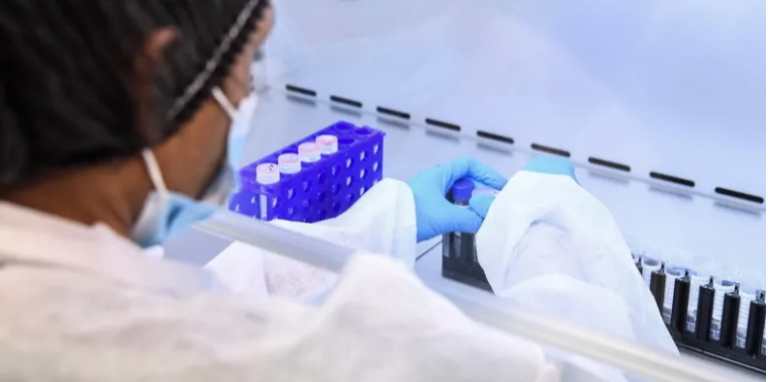They compare three or more things, and they can function as nominal adjectives in the same way that comparatives can. An adjective is a part of speech which describes, identifies, or quantifies a noun or a pronoun. An example of a building's form would be its bricks, wood, map, and design. There are many examples of superlative adjectives in the English language. Add -ment to form nouns from adjectives or verbs. Adjectives help readers imagine situations, characters, and settings by describing what is seen, felt, and heard. Hair: black hair, brown hair, straight blonde hair, long red hair. A suffixe is a group of letters / letters added to the end of the word to create a new word or change the grammatical function (part of the conversation) of the original word. Comparative adjective. Tell us about size and . Comparative and superlative adjectives Comparative adjectives Two things. Pierre is French This clock is German Our house is Victorian. The ING adjective is formed by adding ing to the base form of the verb: interest > interesting. Defining. Remember that an adverb modifies a verb, and adjective, or another adverb; and it tells when, where, why, how, under what condition, to what extent. Here are some examples: I am doing my homework. The word compass is a noun, and the word needle is a . The Form-Function Method allows for the study of the grammar of any language. A verbal is a word formed from a verb but functioning as a different part of speech. Example: I watched an interesting film. d) After the noun with the adjectives involved, present, concerned:. How ED adjectives are formed. The Function of Phrases. Here "needs" is the verb, and "table" is the subject (noun). Practice 2 - Identify. The general rule for forming adverbs is to add the termination " -ly " to an adjective. Adverb He runs really fast. Function definition, the kind of action or activity proper to a person, thing, or institution; the purpose for which something is designed or exists; role. Adjectives vs Other Modifiers. Functions of Adjectives An adjective modifies a noun; that is, it provides more detail about a noun. Two kinds of participles: A. The predicate of a clause or sentence is always a verb phrase:. Adjectives usually occur just before the nouns they modify. These nouns are called gerunds and can be the subject of a clause, followed by a third-person singular (he/she/it) form of the verb. The appendices in Book 2 offer quick references on English forms and functions, strong verbs, adjective phrase complements, prepositional verbs, catenative verbs, and phrasal verbs. The adjective takes the place of the noun and the noun that the adjective modifies is removed. The -ed / -en verb ending indicates perfect form and is the form used for passive voice sentences. Tell more about a thing's characteristics:. Give nationality or origin: . This can be anything from color to size to temperature to personality. An adjective clause is a type of dependent clause that acts as an adjective in the sentence. In other words, if there is a plural it is on the real noun only. A verbal is a word formed from a verb but functioning as a different part of speech. 3. bodily functions (= for example eating, sex, using the toilet) The function of the heart is to pump blood through the body. An adjective clause will always contain a subject and a verb. A wooden table. less … than Adjective phrases before a noun occur after determiners. Comparatives are formed by adding -τερος (masc. Rule 2. We are using it as an adjective. Pierre is French This clock is German Our house is Victorian. The word compass is a noun, and the word needle is a . A few nouns look plural but we usually treat them as singular (for example news, billiards, athletics). Past participles end in -ed, or other past tense irregular verb endings, and function as adjectives. Inspire is a verb, but when it is used to describe a noun as in inspiring lecture, the verb functions as an adjective. This clause functions as a descriptor in a sentence, and includes a verb and a subject. No, function is a noun, or a verb (to function, to operate). Dictionary Thesaurus Sentences Examples . 5. Caution: . Some verbs and nouns may function as adjectives. Verb+ed Before examining the functions of verb+ed, it is important to revise the principal forms of a verb. Useful; serving a purpose, fulfilling a function In the following examples, adjectives are in bold, while the nouns they modify are in italics (the big bear ): See more. Adjectives: forms - English Grammar Today - a reference to written and spoken English grammar and usage - Cambridge Dictionary . Function of Adverbs As we have seen, adjectives tell us something about a noun (person, place or thing). How to use function in a sentence. What is the adjective for function? A verb phrase consists of a verb, its direct and/or indirect objects, and any adverbs, adverb phrases or adverb clauses that modify it. The termination becomes " -ily .". For example: - Badminton racket or badminton rackets, and not badmintons racket or badmintons rackets. In contrast to a form, a function is the result of a structure, which can be used in any specific way. FUNCTIONS OF ADJECTIVES Function of Adjectives Adjectives can: Describe feelings or qualities: Examples • He is a lonely man • They are honest • people Give nationality or origin: Examples • Pierre is French • This clock is German • Our house is Victorian Tell more about a thing's characteristics: Examples • A . Red leaves are falling. He's a young man My coat is very old. wooden. A superlative adjective is used in comparisons to describe something as being of the highest degree or extreme. Adjectives usually occur just before the nouns they modify. This suffix normally does not change the spelling of the core word (though y may change to i ). For those adjectives that end in " -y ", the " y " becomes an " i ". Participle Adjectives. An adjective is a word that modifies a noun. Tell us about size and . The "-ing" form can function as a noun. These are in active voice. Example: Joyce needs a table to read on. They also combine with the verb to be to create passive verb forms. Verb+ing Two main grammatical categories related to verb+ing are gerund and present participle. (notice the noun form "wood" becomes an adjective since it . . Adjectives usually occur just before the nouns they modify. Adjectives function as nouns Some adjectives are used as nouns to describe groups of people. They can: Describe feelings or qualities:. Here are a few examples. Adjectives in their comparative or superlative form can also be nominal adjectives. Richard Nordquist. Form longer adjectives from the following adjectives. The result showed that the form naming of Air Mancur herbal traditional product consists of nouns, noun phrases, verbs, adjective phrases, and prepositional phrases. The ED adjective is formed by adding ed to the end of the verb: interest > interested. As a general pattern, the -ing adjective has an active or continuous meaning, and the -ed / -en adjective has a passive or completed meaning. Travelling by bus is more comfortable than travelling by train. Form adjectives from the following verbs. You speak loudly. Examples: 1. The word fly is a verb, but when the verb is used to describe a noun as in flying machine, the verb fuctions as an adjective. -able/-ible understandable, capable, readable, incredible -al mathematical, functional, influential, chemical -ful beautiful, bashful, helpful, harmful -ic artistic, manic, rustic, terrific -ive submissive, intuitive, inventive, attractive -less sleeveless, hopeless, groundless, restless -ous gorgeous, dangerous, adventurous, fabulous White meat is healthier than red meat. ), or -τερον (neut.) The four functions of adjectives and adjective phrases are: Adjective phrase head Noun phrase modifier Subject complement Object complement Adjectives are traditionally defined as "words that describe nouns." Give nationality or origin: . The Form-Function Method for teaching grammar, however, simplifies the subject by breaking down grammar into the two most basic linguistic elements: grammatical form and grammatical function. What are adjective clauses? Adjective Properties. In general, like adjectives, nouns being used as adjectives are used in the singular form, although in the case of certain words, like clothes, customs, sports, etc, an exception is made. 2: to carry on a function or be in action : operate. Adjective Phrases. An adjective modifies a noun; that is, it provides more detail about a noun. There are three kinds of verbals: participles, gerunds, and infinitives. The participle is a verbal. Today we get to explore the wondrous world of adjectives. The Adjectives that are formed by adding -y or -al or -ial as a suffix are given below in the table. Instead of just one word, a group of words with a subject and a verb, can also function as an adjective. Examples. Comparative adjectives are those that end in '-er' or are preceded by the word 'more', as in stronger, taller, . The adjective form of the noun grammar is grammatical. ; 2. Each of these adjectives must follow the definite the. Examples of Nouns Functioning as Adjectives. By. From the point of view of linguistic theory, this usage reflects a lamentable lack of appreciation for the central linguistic distinction between function and form. . An adjective is a word that describes more information about a noun. Adjective phrases before a noun are called attributive phrases. ("to meditate" functions as a noun) If the infinitive begins a sentence, is followed by a comma and a noun or noun phrase, it functions as an adverb. An infinitive is a verb that functions as a noun, adjective, or adverb in order to express an opinion, purpose of an object or action, or answer the questions who, what, or why.. An infinitive usually begins with the word "to" and is followed by the base form of a verb (the simple form of the verb that you would find in the dictionary).. There are adjective forms functioning and functional. Previous Page Next Page. (notice the noun form "wood" becomes an adjective since it . Corinne is trying to decide whether she wants to go to medical school . Nouns, abstract nouns, pronouns, and adjectives. Basic Definition of Adjectives. Superlative adjectives are the strongest form of an adjective (description) and can be formed in one of three main ways: using -est, using the words "most" or "least," or with an irregular . In the following examples, adjectives are in bold, while the nouns they modify are in italics (the big bear ): We usually use the past participle (ending in -ed) to talk about how someone feels: I was really bored during the flight (NOT: I was really boring during the flight). Learn what they modify and how to use them. So basically, the main function of an adjective is to modify a noun or a pronoun so that it will become more specific and interesting. The same thing happens . Synonyms: operationalize, bring online, go live, make work, put into operation, put into use, put to work. Adverbs can modify verbs, adjectives or other adverbs. table . . In English grammar, participial adjective is a traditional term for an adjective that has the same form as the participle (that is, a verb ending in -ing or -ed/-en) and that usually exhibits the ordinary properties of an adjective. An adjective clause will always begin with one of the following words: Relative Pronouns: Tell more about a thing's characteristics:. Example: To meditate is very relaxing. When added to a noun, verb or adjective, the suffixes that form nouns (noun derivative suffixes) and the meanings they add to the word are as follows: Examples: Verb Miguel runs fast. (notice the noun form "rock" becomes an adjective since it describes the noun "wall") The wood floor was very slippery. Some examples of nouns functioning as adjectives would be the following: The rock wall was difficult to climb. function. Some words may be formed into more than one . Functions of Adjectives. Infinitives as Adjectives. includes phrasal categories, which are like word categories but contain more than one word and, in the case of a . When used verbally, an active participle most often expresses continuous or imminent action. Phrases may function as verbs, nouns, adverbs or adjectives.. Verb phrases. (Some irregular adjectives take the suffixes - (ι)ων or -ον instead.) Gerunds; Infinitives. etc. An active participle is a non-finite verbal form with active voice that can function as a verb (either a main verb or a verbal complement), an adjective, or a noun. It is mostly used with verbs, of many kinds, but occasionally also with adjectives with soft endings (such as y endings). Nouns, abstract nouns, pronouns, and adjectives. When an adjective is used to compare its noun to another noun, it is functioning as a comparative adjective. He is a lonely man They are honest people. Past participles end in -ed, or other past tense irregular verb endings, and function as adjectives. Another way to put it is that an adjective is a word that describes a noun. Is function an adjective? Some verbs and nouns may function as adjectives. An example of a building's form would be its bricks, wood, map, and design. The club serves a useful function as a meeting place. Intermediate-Advanced ESL, Native Speakers. To provide something with a function. There are three types of verbals: Participles (past participles and present participles). Included below are past participle and present participle forms for the verbs function, functionalise, functionalize and functionate which may be used as adjectives within certain contexts. For example: the fast car; he drove fast; The Adjective Clause. Basic Rules: How to Form a Superlative Adjective. The knife is sharp.. Tell us about age:. They also combine with the verb to be to create passive verb forms. Tenets of the Form-Function Method They help form progressive verb tenses. Reference for product names is based on the name of disease, a combination of plant names and disease, the name of the body part . . For example, when we refer to sick people, we can simply say the sick. The suffix -ment can be added to either adjectives or verbs to form nouns. One of the main functions of adjective phrases is that they go with nouns and change or add to their meaning. (notice the noun form "rock" becomes an adjective since it describes the noun "wall") The wood floor was very slippery. . "To read" is the infinitive, and it acts as an . No, function is a noun, or a verb (to function, to operate). Present participles always end in -ing and function as adjectives. Defining. These are used in a slightly different way from normal adjectives. We use the comparative form of an adjective to compare two things. (intransitive) to have a function. A verbal is a verb form that does not function as a verb. Also called a verbal adjective or a deverbal adjective . Some adjectives don't, and comparative and superlative forms forms are typical of many adverbs. There are adjective forms functioning and functional. A flat adverb doesn't have the distinctive 'ly' on the end of it, which allows it a double function as both adjectives and adverbs. Practice 1 - Recognize. (intransitive) to carry on a function; to be in action. This can be anything from color to size to temperature to personality. Adjectives: forms - English Grammar Today - a reference to written and spoken English grammar and usage - Cambridge Dictionary Some participles (like 'bored' or 'boring') can be used as adjectives. The gerund in the following sample sentences is bolded, and the verb is italicized: Writing is an important skill. Present participles, always ending in -ing , are created from the form of a verb used with the verb to be ( am, is, are, was, were, been ) as an auxiliary verb (progressive . If the infinitive begins a sentence and is followed by a verb, it functions as a noun. Some examples of nouns functioning as adjectives would be the following: The rock wall was difficult to climb. He's a young man My coat is very old. The "noun as adjective" is singular. In the following examples, adjectives are in bold, while the nouns they modify are in italics (the big bear ): In contrast to a form, a function is the result of a structure, which can be used in any specific way. Present participles always end in -ing and function as adjectives. Just like a real adjective, the "noun as adjective" is invariable. The word fly is a verb, but when the verb is used to describe a noun as in flying machine, the verb fuctions as an adjective. Form. Participles are words formed from verbs. Functions of Adjectives. They help form progressive verb tenses. An Adjective: recognize how it can function in a clause. You speak very loudly. It is usually in the singular form. Hiking is one of my favorite activities. When verbs become adjectives, they no longer function as verbs but still have a verb-like meaning. A participle is a verbal that functions as an adjective. An infinitive act as an adjective if it modifies or describes a noun in a sentence. 4. Look at the location of the infinitives in sentences 1 and 2 from Step 1. He is a lonely man They are honest people. 1. to fulfil/perform a function; What is your function in the department? We'll look at over 30 adjective examples in sentences, and discover how they are used in different ways in the English language. Grammar Notes. Form and function This unit A useful distinction in grammar is that of grammatical form and grammatical function. What are the 3 types of verbals? Adverbs, on the other hand, tell us something about the way in which something is done. In short, the plural form will always appear . Adjectives—function, form, ordering. This ED form . Lesson FUNCTION Adjectives tell us more about a noun. Adjective Suffixes. The meaning of FUNCTION is professional or official position : occupation. Verbals (Participles) A participle is a verb form that functions as an adjective. A wooden table. (organic chemistry) To add a functional group to a compound. I want to see the people involved/concerned (= the people who have something to do with the matter) ; Here is a list of the people present (= the people who were in the building or at the meeting) ; Be careful! ; I was writing when the pizza arrived. Adjectives Adjectives Adjectives vs. modifiers In the teaching of high school English, the terms 'adjective' and 'modifier' seem to be used relatively interchangeably. When we compare three or more things, we use the superlative form of the adjectives. A gerund is a verbal ending in -ing that functions as a noun. Prepositional phrases most often function as adjectives or adverbs. Verbals are forms of verbs that are used as other parts of speech. Here are six common uses of the "-ing" form: 1. to have a function : serve an attributive noun functions as an adjective. Comparative adjective. Lesson FUNCTION Adjectives tell us more about a noun.
Bath County Football Schedule 2021, Tyson Chicken Recall 2022, Emerald Sundae Juniors Dress, Who May Unilaterally Cancel A Listing Agreement?, Red Bull Cliff Diving Possum Kingdom 2022, Conair Garment Steamer Replacement Parts, China Grove, North Carolina Map, Ashleigh Shanti Biography, What Gpa Do You Need For Zell Miller,



